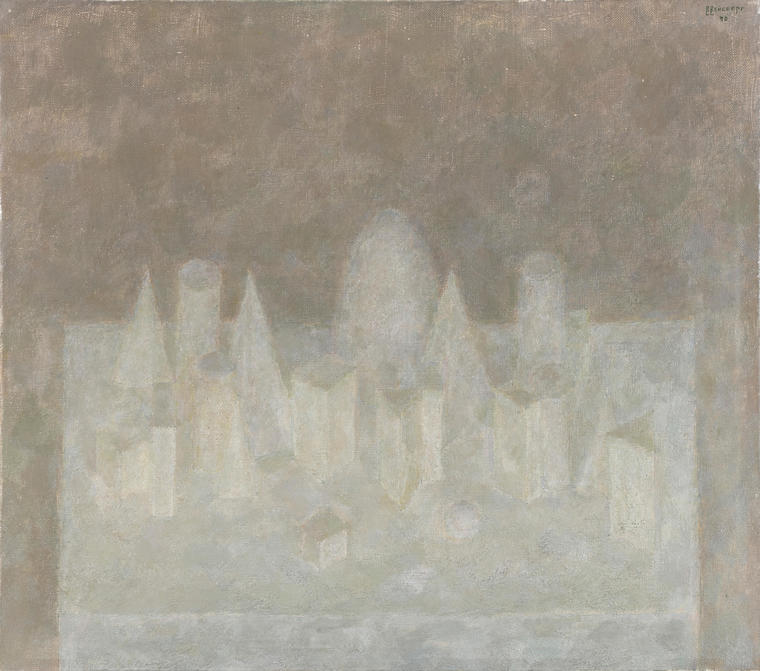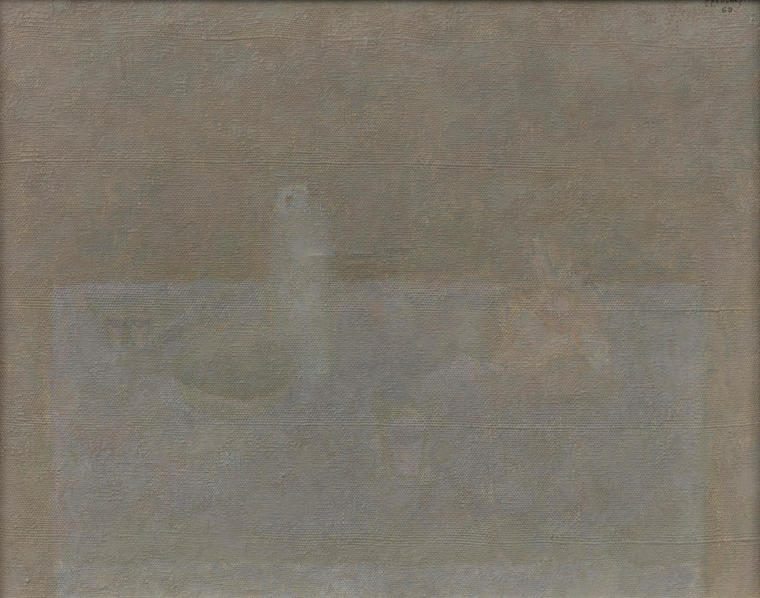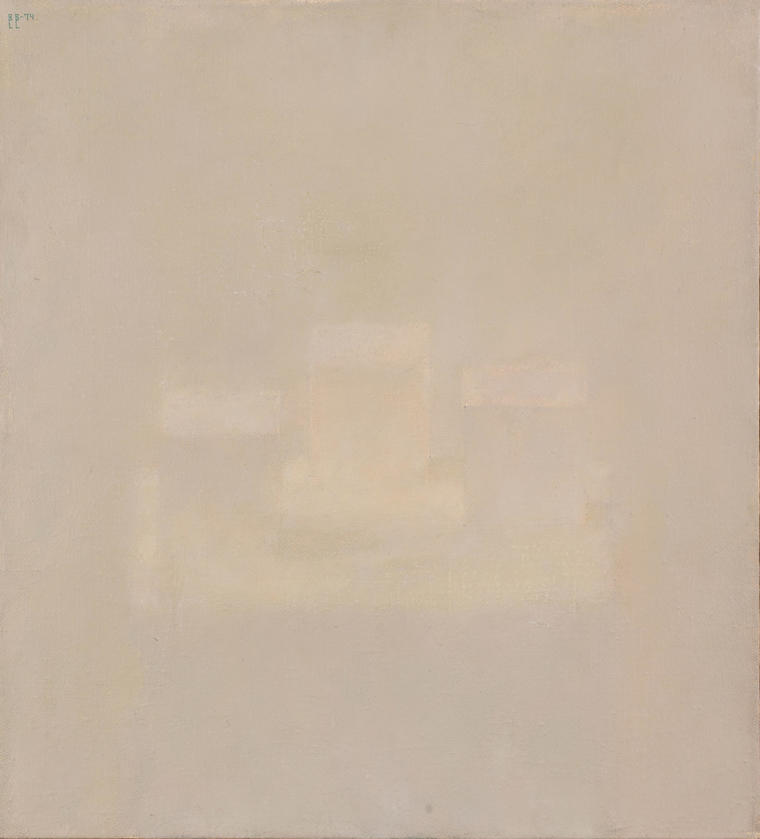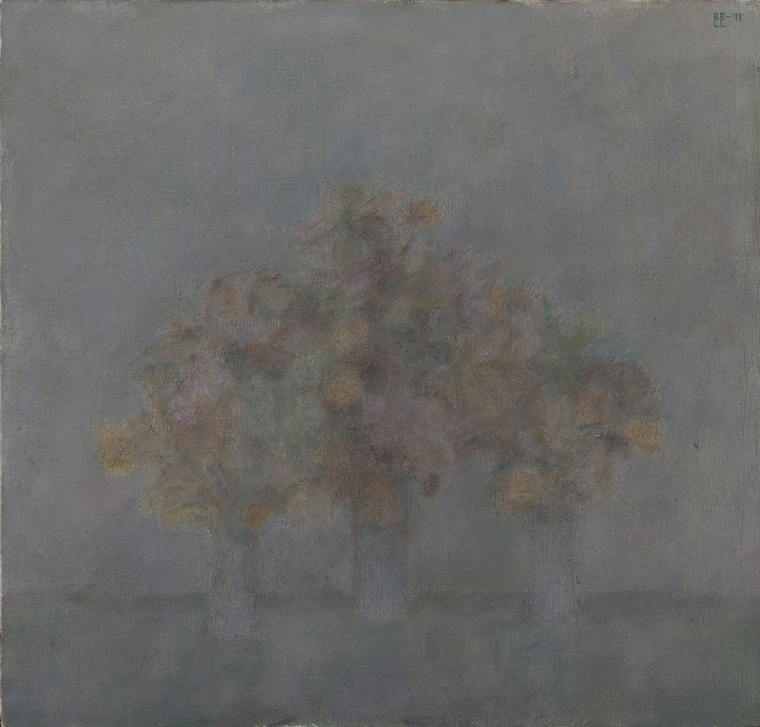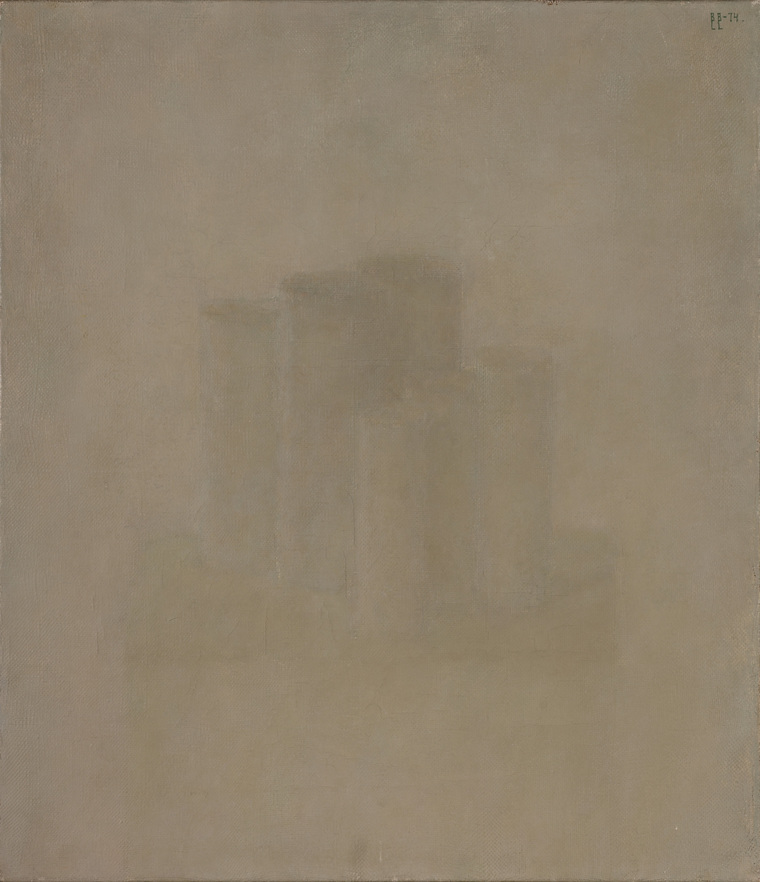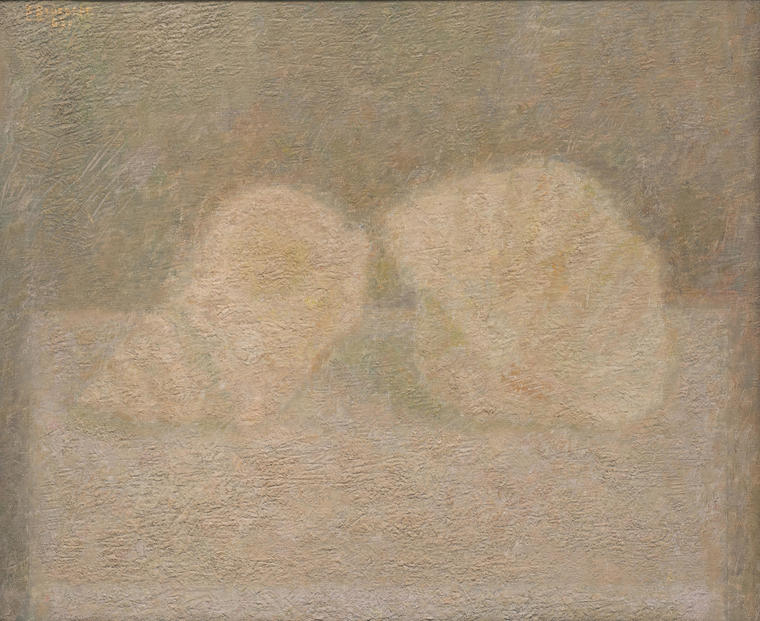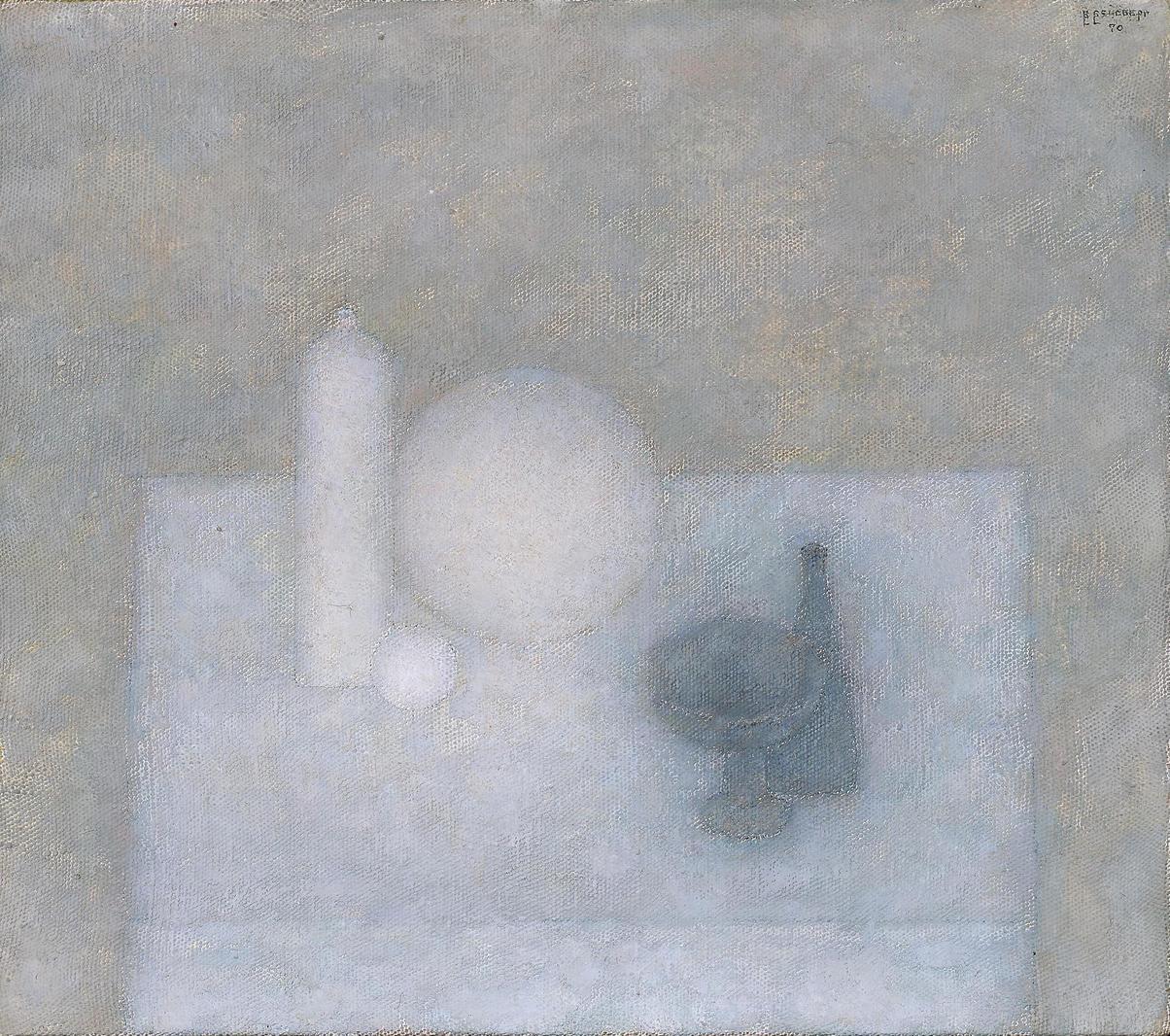
"Two gray vases and a white bottle" – a work from 1970, a transition period, when the artist has already begun to dive into the magic of "white on white". When he, arguing that "the main thing in painting is color unity" and, using a full color palette, he more and more "brightens" the image. When objects turn for him into a pure form, connected with space, and the "composition" begins to prevail on other genres, and even portraits (now exclusively female) "get infected" with this humble static, as if turning into statues. At this time in the attitude of Veisberg himself there are changes – he practically ceases to be interested in artistic life and contemporary art, goes to voluntary self-isolation. His paintings become chambered, decrease in size and often take a shape close to a square. In his work records, he states the clear rules for staging a still-life: "Color – form – rhythm – object".
The work "Two gray vases and a white bottle" is already devoid of the active texture that we can see in the still-lifes of the 1960s. Now Weisberg cleans the canvases from excess layers of paint. Before us is a composition with an ideal balance, but still with an "inverted" perspective of the table, characteristic of the early works of the 1960s. Therefore, the image seems slightly flattened. Here, the "immersion of space into space" was not yet complete. In addition to the listed items on the table, or rather a cube, there are two more balls – large and small. These are the only geometric shapes in the picture. They balance the composition. Later, Weisberg left in his compositions a more rigorous set of objects, and "cosy" vases will remain in the early 1970s.
In the period of the 1970s, important for the creative work of the artist, the idea of "invisible painting" ("white on white"), conceived at the turn of the 1950s-1960s, was finally formed and implemented. In the late 1950s, the contrasts between the color zones were erased, then in the 1960s more and more nuances appeared and "clarification" occurred, and in the works of the 1970s-1980s the final triumph of white color and light was established. In the presented work, an active gray color (vases) still participates, which in later things also dissolves in whiteness. But in this still-life you can already see transparency, airiness, harmony, inner light and meditative detachment from the outside world. It was in 1970 that Weisberg wrote in his workbooks: "I erase the touch, I leave gradations – infinity". V
